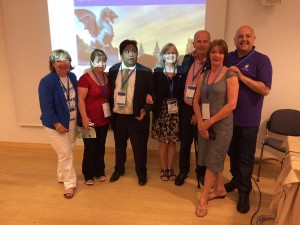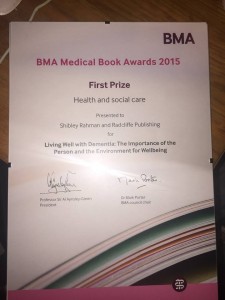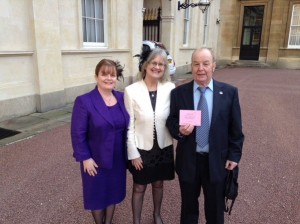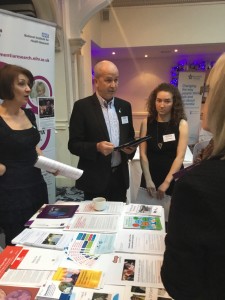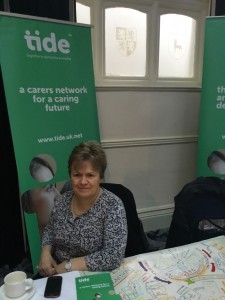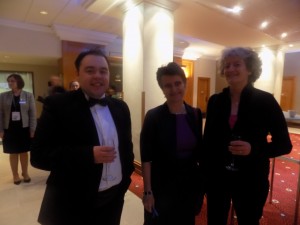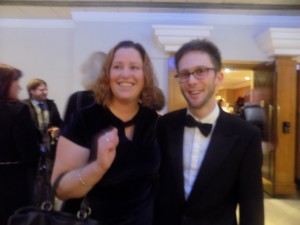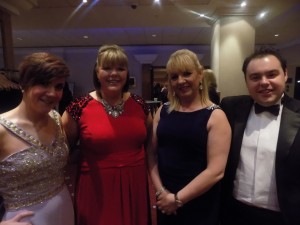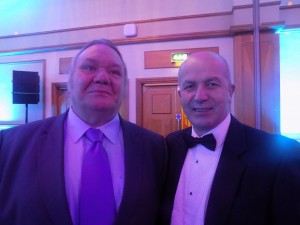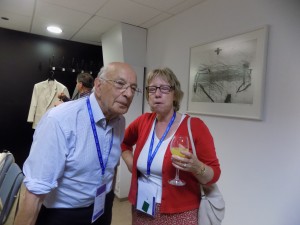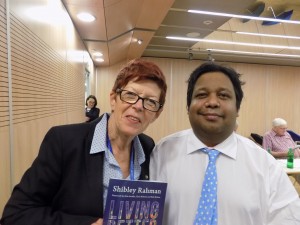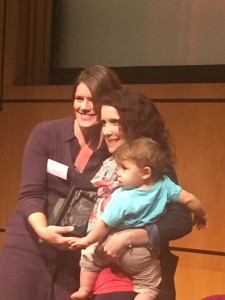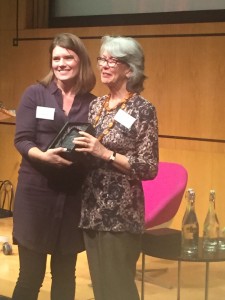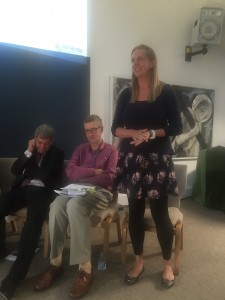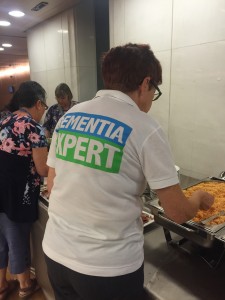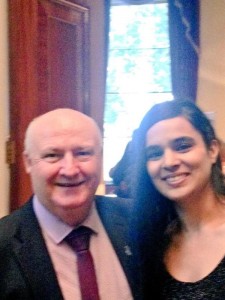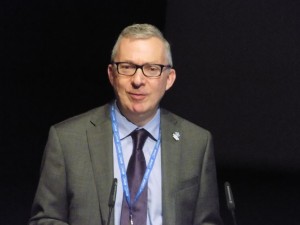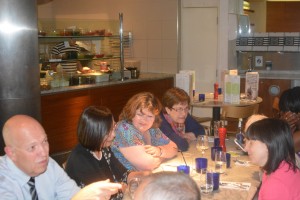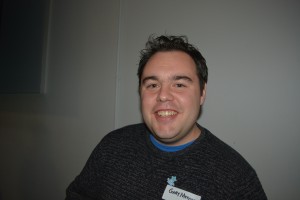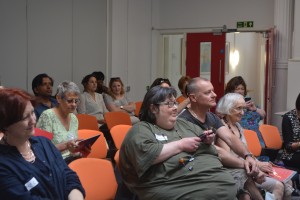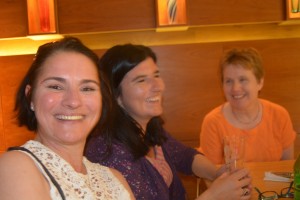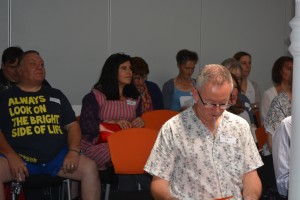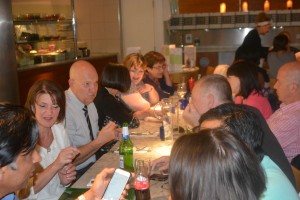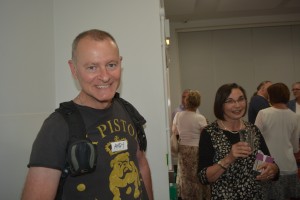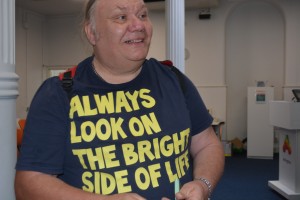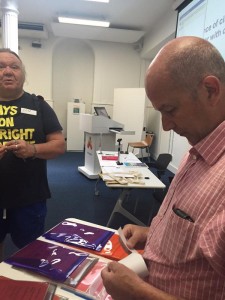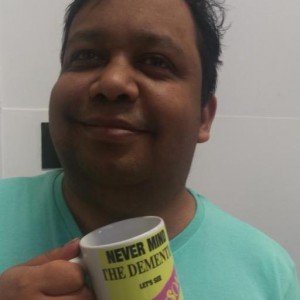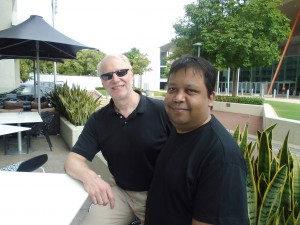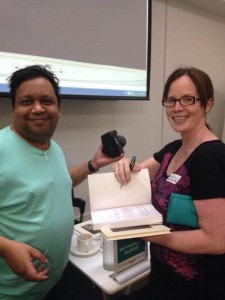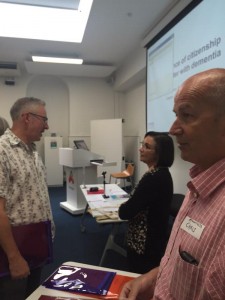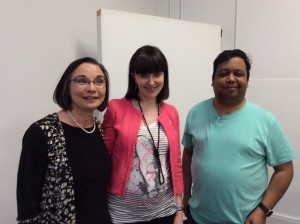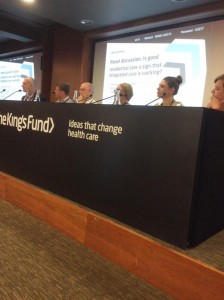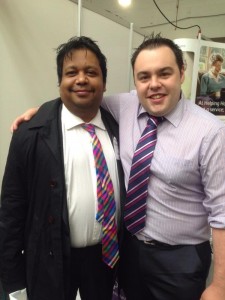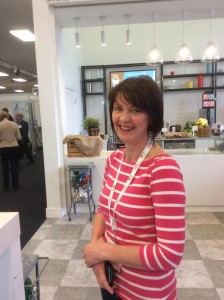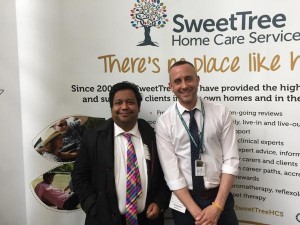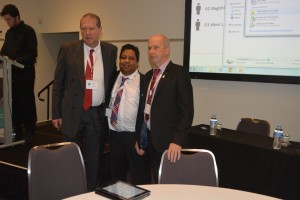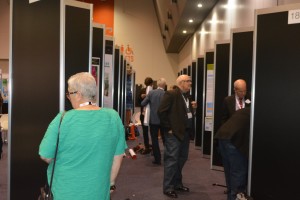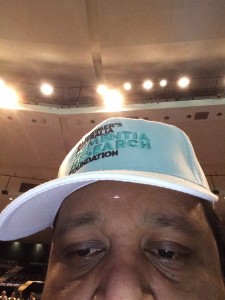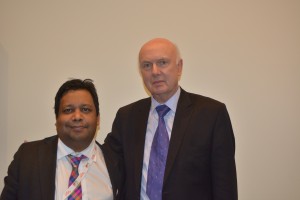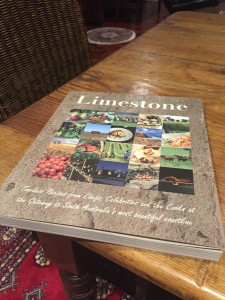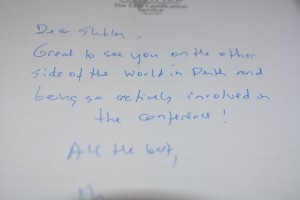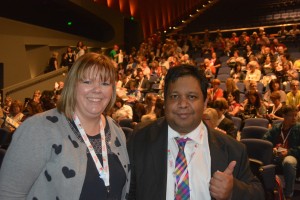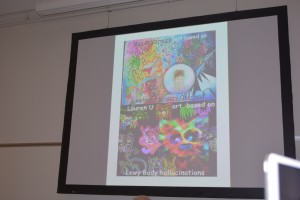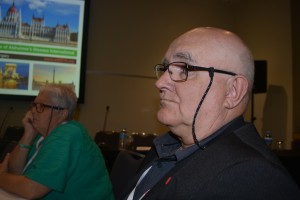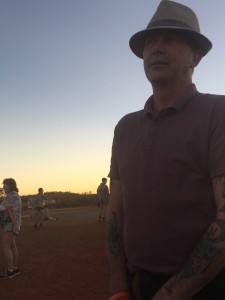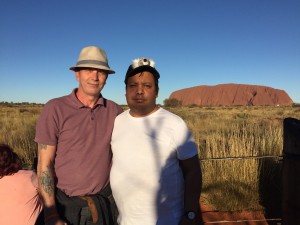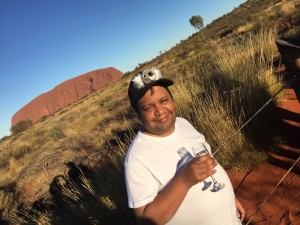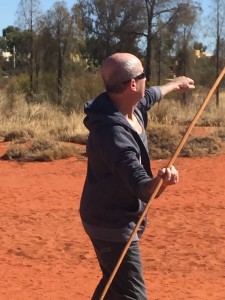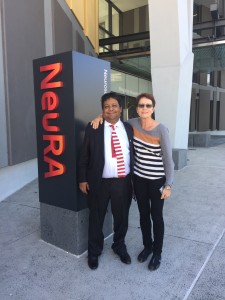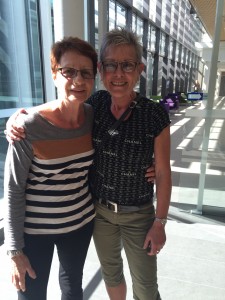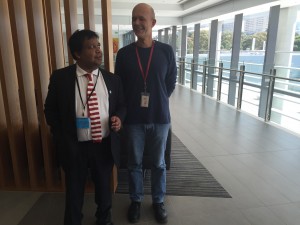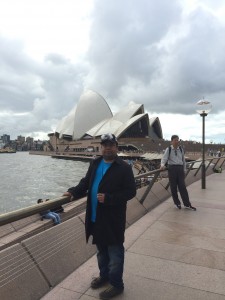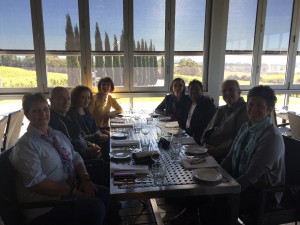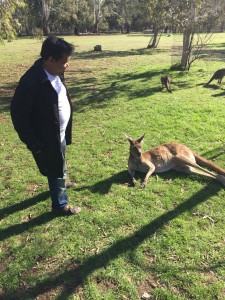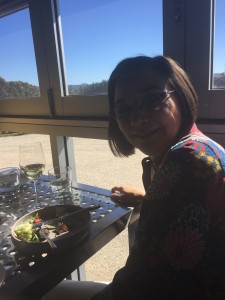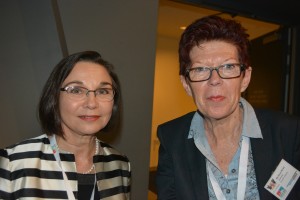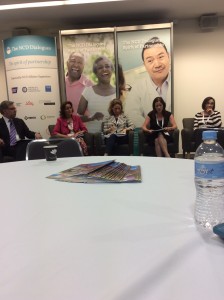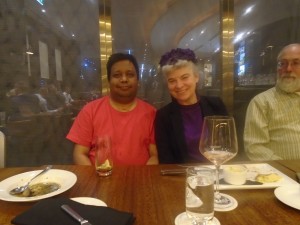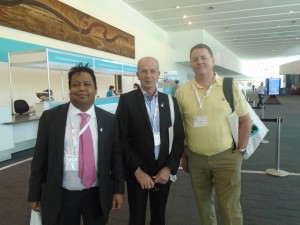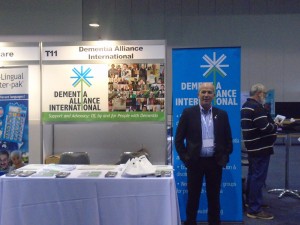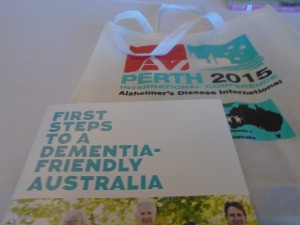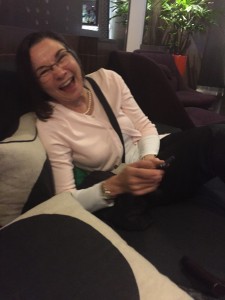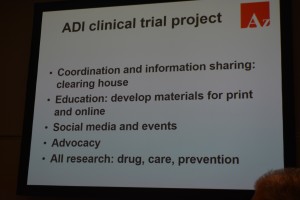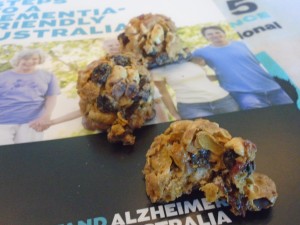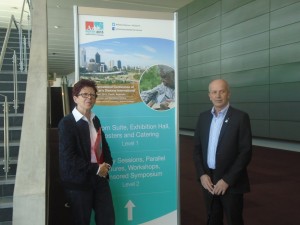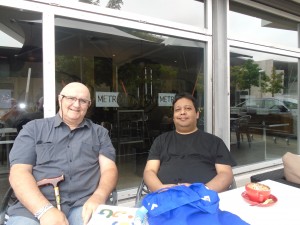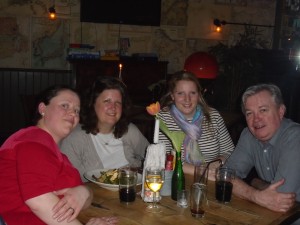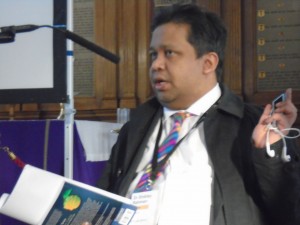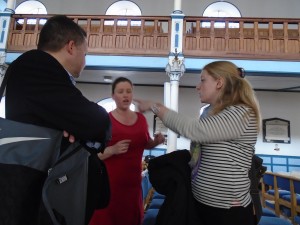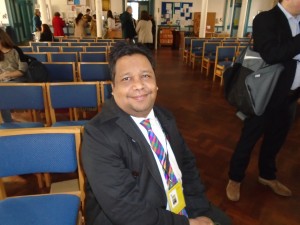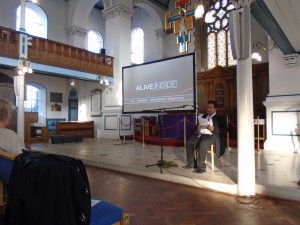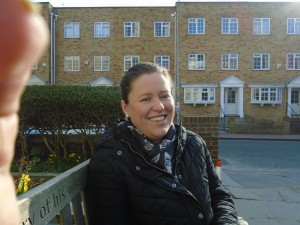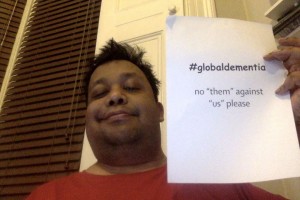I actually hate ’round robins’, so the idea of me “bigging up” my achievements is much of an anethema to me as it is to you. If I were a clinical regulator organisation, I’d want to be celebrating the very best, as well as identifying the very worst. I am unlikely to give myself a ‘very good’ rating, unless I am nominating myself for a HSJ award. In terms of my own development, I think I progressed substantially from my first book ‘Living well with dementia: the importance of the person and the environment’ to the second book ‘Living better with dementia: good practice and innovation’.
The reasons for this progression were two-fold, I think. Firstly, Chris Roberts most politely offered me feedback about the limitations of the phrase ‘Living well with dementia’. In a nutshell, the major problem is if somebody has a bad day the phrase unfairly blames him or her – in effect the phrase sets people up to fail. A better phrase ‘living better’ is aspirational, and relative. Secondly, I changed in style from one of technocracy, in meeting the demands of the NICE quality standard 30 ‘Supporting people to live well with dementia’ in England to a “more human”, as Steve Hilton might put it, discussion of some important issues in world policy.
My work no longer felt like work, and more like something enjoyable I would do learning from things which had happened in my life. A big thing which happened in my life was going to Australia. I always said to Chris, Jayne and Kate that this would end up ‘being a trip of a lifetime’, which was our justification to ourselves that we wouldn’t ‘slum it up’. Quite the opposite happened. I had a truly magical time. When I got over the daily anxieties of wondering where my passport, wallet, keys and phone were, I loved being in the company of some truly remarkable people. I almost daily read Kate Swaffer’s blog and Beth Britton’s blog. I read the DAI’s blog weekly if I can.
I should really avoid a list, for fear of missing people out, but these must include Kate Swaffer, Peter Watt, Boris the Cat, Veda Meneghetti, Lynda Henderson, Mick Carmody, Sue Carmody, Ian Gladstone, and Jacinta Lynch. But they also include people I came to know also through the Alzheimer’s Disease International conference, held this year in Perth, Western Australia, including Gayle Harris, Truthful Kindness, and Denise Craig. Definitely one of the most surreal ‘episodes’ in #ADI2015 was when the indefatigable Suzy Webster appeared by video link in one of sessions. It’s true – Chris had not seen Suzy on the plane either! My own talk there was on risk and genetic discrimination.
Later in the year, Kate Swaffer and I went down to see Charmaine Hardy and family down in Robertsbridge. I saw Charmaine where in London for the PPA Support Group, brilliantly run by UCL. As you’ll be aware, I think the world of Kate. We became fans of Tony and the Ostrich pub in Robertsbridge, as Charmaine had warned us!
I got to know as very close friends some people at events throughout the year, especially Agnes Houston, Donna Houston, Helga Rohra, Wendy Mitchell, Beth Britton, James Murray-White, Fenella Lemonsky, Jens Rohra, Prof Peter Mittler, Gary Mitchell, Joanne Agnelli, Ken Howard, Toby Williamson, Jennifer Bute, and Colin McDonnell. And also people who fleetingly appeared, but were a big part of my daily Twitter lives, cumulatively made a big impact, including Jeremy Hughes, Larry Gardiner, Alison Cameron, Jos Bell, Karen Dening, Rachel Thompson, Prof Alison Leary, Mehrdad Seyf, Steve Milton, Tommy Dunne, Ripajeet Kaur, Joyce Dunne, ‘Diverse Alz’, Ceri Sian Hodgkinson, Rachel Mortimer, Sarah West, Fran O’Hara, Katy Judd, Pam Luckock, Rebecca Myers, Carmen Medina, Lee Spokes, Hilda Hayo, Hilary Evans, Simone Willig, Hilary Doxford, Silke Kammer, Gráinne McGettrick, Rachel Niblock, Ruth Eley, Louise Langham, Anna Gaughan, Jean Tottie, Marc Wortman, Barbara Stephens, Reinhard Guss, Geoff Huggins, Prof. Olivier Piquet, Lorna Anna Hart, Al Power, Joy Watson, Tony Watson, Philly Hare, Andy Tyson, Zoe Harris, Rachel Menzies, Irene Oldfather, Sarah Reed, Helen Sanderson, Suzi Henson-Amphlett, Richard Humphries, David Oliver, Lucy Frost, Jim Pearson, George Mcnamara, Amy Dalrymple, Gavin Terry, Amy Pepper, Daniella Greenwood, Caroline Millichamp, Debbie Sorkin, Graham Browne, Gary Marsh, Sara Marsh, Andrea Sutcliffe, Nicky Taylor, Prof Dawn Brooker, Prof Murna Downs, Prof Alistair Burns, Prof Martin Prince, Des Kelly, Glenn Rees, Prof Bob Woods, George Rook, Olwen Williams, Caroline Sutcliffe, Joyce Cavaye, Nada Savich, Elo Novilunio, and, of course, Tommy Whitelaw. And Nicole Batsch on a DAI webinar!
Thanks to Jo Moriarty, whose modesty and sheer knowledge are unmatched.
@ermintrude2’s blog is a MUST read for me now, which cuts through all the bullshit in policy ( pardon ).
And I immensely value the thousands of people who know what dementia’s about from Twitter, and who know what life’s about, including Truffle the Cat (whom I have never met ever.) I try to keep up to date with blogs which interest me, like Pippa Kelly’s excellent blog. It was also nice to chat with Lyn Romeo, which I found generally most useful in realising the pivotal work done in the social care profession. I met for the second time ever Peter Ashley at a round table on human rights and dementia, being run by Toby Williamson at the Mental Health Foundation. Peter was a great man, and may he rest in peace. I have been massively moved by Kate Swaffer’s missing of Richard Taylor PhD who also passed away this year. Kate was visibly moved by the video sent by Richard for our private get-together of friends and colleagues on July 11th 2015 in the Arlington Centre, Camden.
Kate gave a talk on the 11th which was brilliant. I gave one too.
Chris’ introduction meant a lot to me personally. I find Chris a rock of support.
Also missed to me is Tim Lloyd-Yeates, whom I spoke to on the phone several times after his diagnosis. It was, however, great to celebrate Tim at the Dementia Congress in Telford.
I turned up to the ‘supporters day’ of Alzheimer Research UK in Euston Road round the corner of where I live, and thought the talks and workshops explaining the work the charity does were brilliant. Hilary clearly is hugely respected there, and so ‘gets’ it. I gave a talk on book 2 at the Alzheimer’s Show in London Olympia, which was another lovely get-together of lovely people too. I was on a panel at the King’s Fund, talking about the future directions of our English dementia strategy, which I loved (and I later attended the ‘enhancing health in care homes’ day there which I learnt a lot from). I attended the Alzheimer’s Society Annual Conference, which I loved, especially the talks by Dennis Gillings and Sir David Dalton.
I ‘made’ about a hundred ‘Dementia Friends’ this year through my talks at BPP Law School, which I’m proud about – a hundred more people who know a bit more about dementia. In fact, I went to an event for Dementia Friends Champions, at their HQ in Devon House, which I enjoyed enormously. DevoManc (with the work of ‘Dementia United’) turned out to be quite a big part of my year indirectly. As a complete aside, I did a few information leaflets on diverse issues for the Manchester academic unit. I loved Alzheimer Europe’s conference held this year in Ljubljana, where I gave a talk on the critical importance of clinical specialist nurses in dementia.
I will in the new year have a paper in Nursing Times on wider issues involved in Nursing Times with Karen Dening, who is Director of Admiral Nursing at Dementia UK. Education matters a lot to me.
I was honoured to accept an invitation to speak on the importance of social media and research at the Open University in Camden, even if it did have an unintended adverse effect of me disliking the research assessment exercise of professional academics. As the year progressed, research and advocacy became more enmeshed with one another for me. I became very interested in human rights and disability activism, and, completely as a result of Prof Peter Mittler, became interested in the United Nations Convention on the Rights of People with Disabilities. I think it’s fair to say that Peter keeps on the ‘right track’ as an academic mentor, for which I am hugely grateful.
In terms of education, I gave four one-hour evening lectures at BPP Law School on aspects of English dementia policy including dementia friendly communities, integrated care, care, cure and research, and choice and control.
This is the one Kate attended (as we were lucky enough to have Kate visiting England in the summer of 2015):
I hope to be organising an MSc online course in dementia for BPP in the new year. BPP is where of course I did some of my postgraduate degrees in law and business. It was, however, with unexpected pleasure I had a great time doing 20 slides with 20 seconds per slide ‘Peucha Kucha in Newnham College on risk and dementia, despite my mixed experience of Cambridge, my original alma mater.
Senses became very significant to me in three ways – firstly, Kate’s emphasis on them in her cuisine, Agnes’ work on raising impairment about sensory issues in dementia, and, finally, the talk I gave on the importance of music as part of Lucy Frost’s “Alive” season in a church in Brighton.
You see, I don’t ‘do’ dementia as a job, as a source of income, apart from very modest royalties from my books. I very rarely claim expenses. I overall attend events all at my own expense. But I enjoy what I do, and that counts for a lot. Chris Roberts did however emphasise that what I do for a living, writing and researching, is equal to a proper job, and advised that I should not belittle its value at all. I don’t have any conflicts of interest, which means I can speak my mind, as you can tell. It was, an honour, to have my work appreciated by peers in that I won best book in the category of ‘health and social care’ for the BMJ Book Awards.
I am now working on my third book, this one to be published by Jessica Kingsley Publishers, entitled ‘Enhancing health and wellbeing in people with dementia: care homes and care at home’, which is in effect on ‘integrated care’, but actually on promoting health and wellbeing persons with dementia in the right place, right time and right way. That of course is the ultimate goal of the NHS and social care, and ‘dementia friendly communities’. I intend to write most of it in one of the libraries of the Royal College of Physicians in London, where I became a member this year. I had intended book 3 to be my last, but I wish to do an important 4th one with Gary Mitchell in 2016 part 2 (a surprise.)
(Apologies to anyone I’ve missed out completely unintentionally.)
Thanks also to the membership of Dementia Alliance International, whose blog and ‘Meetings of the Minds’ sessions I’ve found interesting thus year.
Above all, please do remember that anything can happen to anyone at any time.

